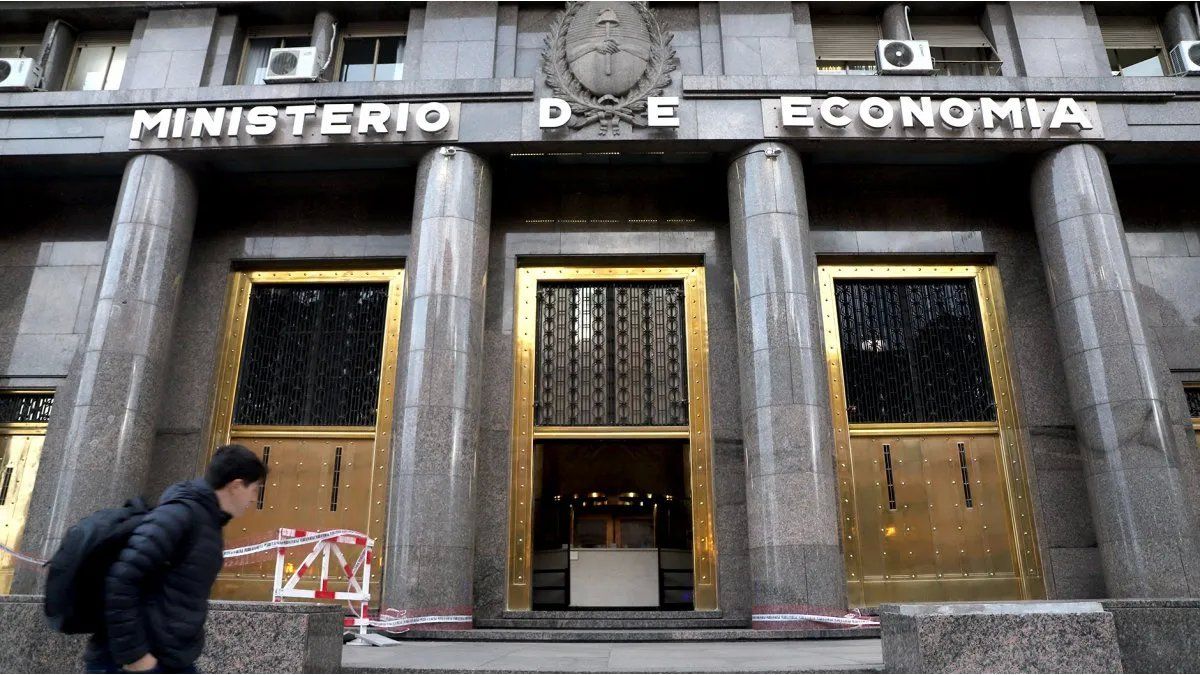The economic leadership released this Sunday a package of measures aimed at containing the rise in prices, after the 8.4% that the index showed in April and the prospect of a bad result in May. Resolutions include an increase in the interest rate, greater commercial controls, suspension of dumping, a plan of facilities to regularize tax and social security debts, a reduction in the rate for cards and savings 12 and an increase in the fixed term rate of 6 points. These are some of the measures that were known but, sources from the Ministry of Economy advanced to Ambit that Other decisions will be known during the week.
The authorities indicate that the purpose is Promote commercial operations fairly, avoiding dominant positions. Also verify the traceability of the goods traded and the correct taxation at each stage.
In addition, consumer orientation attending to the variables obtained in the monitoring process.
The Unit is made up of an executive area with a representative of each organization that composes it. The holders of the intervening jurisdictions will analyze the connected information on a daily basis and will order the necessary measures.
The Secretary of Commerce, Production and Agriculture of the Ministry of Economy will be integrated. Afip, DGI, Social Security and Customs Central Bank Insurance Superintendency National Securities Commission FIU.
tax relief
Tax relief was provided for the stock of debt due as of April 30. It consists of easy payment plans to cancel tax obligations and social security resources due until 04-30-2023.
It is estimated that the amount of the debt to be regularized is $456,063 million and benefits 656,121 taxpayers. Of these, 48.1% are Micro and Small Companies, 11.5% are Medium Tranche I and 31.2% are Small Taxpayers and Monotributistas.
The obligations achieved are:
– Tax obligations and social security resources -including interest and fines- due as of 04/30/2023.
– Imposed fines, supplementary charges for import or export taxes and liquidations of the aforementioned taxes included in the procedure for infractions, as well as their interests, all in accordance with the provisions of the Customs Code – Law No. 22,415 and its modifications – formulated until 04/30/2023.
– Includes the debt under administrative-judicial discussion as well as that included in expired plans until the validity of this general resolution
– Refinancing of current plans is not allowed.
– Does not include the maturities of earnings and personal assets -of individuals and companies- of December 2022.
Tax Relief for current payment plans of MiPyMEs with Badlar rate.
Within the framework of the Covid-19 pandemic, Law 27,653 was approved, which extended the moratorium established in the Law on Social Solidarity and Productive Reactivation (27,541).
As of April, the Badlar rate for private banks is applied, which is in the order of 70% per year. It is for this reason that the payment plans from that month have substantial increases, mainly affecting MiPyMEs.
This measure generates an average tax relief of 50% of the monthly installments of payment plans paid by MSMEs within the framework of the moratorium of Law 27,563.
Suspension of antidumping
The suspension of antidumping duties in branches of distributed inputs was ordered. The objective: reduce the effective price of imports of certain widespread inputs, encourage competition in highly concentrated branches and lower prices throughout the value chain.
For this purpose, a ministerial resolution is provided suspending the application of Antidumping Duties due to “circumstances related to the general foreign trade policy and public interest.”
Consumption
In order to sustain the level of consumption, the Ministry of Economy ordered:
- They lower the rate of Now 12, they reduce the rates for the interest balances of credit cards.
- Increase in refunds to vulnerable sectors for debit card consumption.
now 12
starting next week will drop 9 percentage points the cost of financing in 12 installments. In this way, the consumption of products of national origin is promoted, which represent 5.8 million monthly operations for a total of more than 250 billion pesos. It also constitutes a concrete benefit to merchants and companies.
Central Market
Its objective is to: reduce the effective price of sale to the public of fresh products (fruits, vegetables, vegetables, meat) and non-perishable dry products (food of first necessity).
Defend the power of consumption of the people. Instrument.
In this sense, the Central Market will add the role of direct food importer.
meetings
As much as some areas of the ruling coalition ask for fixed-sum increases, the resolutions of Sergio Massa’s team contemplate not increasing issuance to prevent inflation from accelerating
.The Minister of Economy, Sergio Massa, held a long meeting with the economic team this Saturday at the headquarters of the portfolio
After knowing the inflation data, which implies a cumulative price increase of 108.8% in year-on-year termsthe high officials of the economic portfolio quickly reacted and met with Massa.
The meetings were attended by the Vice Minister of Economy, gabriel rubinstein; the chief of staff of the portfolio, Leonardo Madcur; the president of the Central Bank, Miguel Pesce; the head of the Federal Administration of Public Revenues (AFIP), Carlos Castagneto; the Director General of Customs, William Michel; the director of INDEC, Marco Lavagna; the Secretary of the Treasury, Raul Rigo; the finance secretary of the economic portfolio, Eduardo Setti; the Secretary of Agriculture, Livestock and Fisheries, Juan Jose Bahillo; the Secretary of Energy, Flavia Royon; the Secretary of Industry and Productive Development, Jose De Mendiguren; the Secretary of Commerce, Matias Tombolini; the undersecretary of Commercial Policy and Management, German Cervantes; and the Secretary of Legal and Administrative, Ricardo Casal.
On Friday, the very gabriel rubinsteinadmitted through an official statement released through his social networks that the current situation “will require redouble efforts from macroeconomicsin order to specify policies that allow improving fiscal accounts, the reserve accumulation and exchange rate stabilityas well also strengthen the income policyall in order to achieve better results in the fight against inflation”.
Source: Ambito




